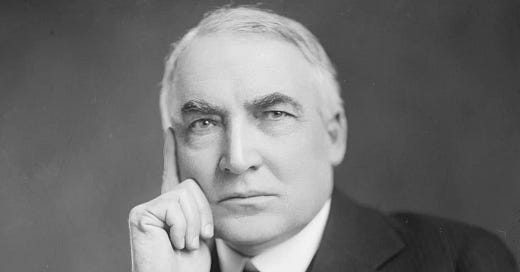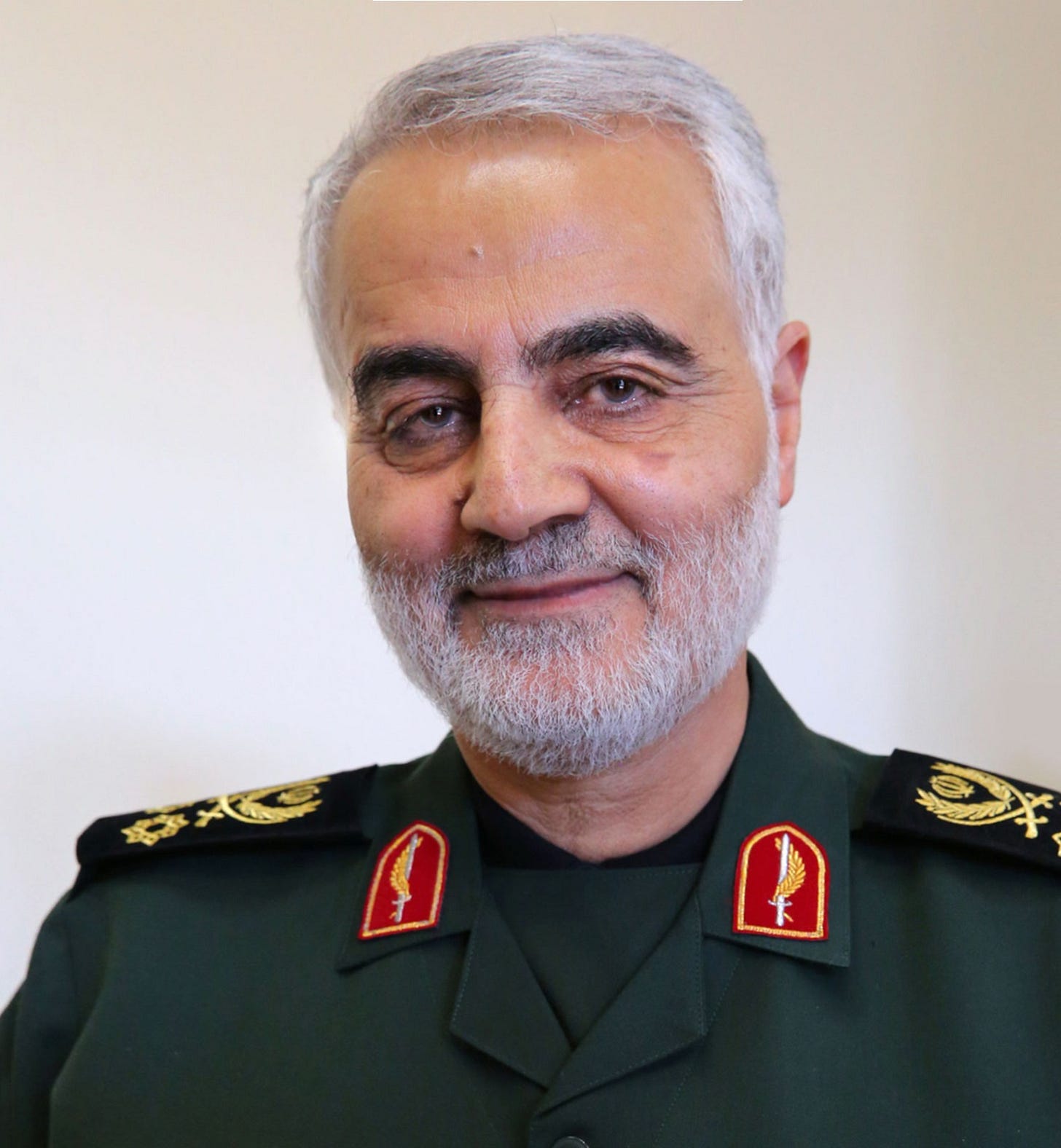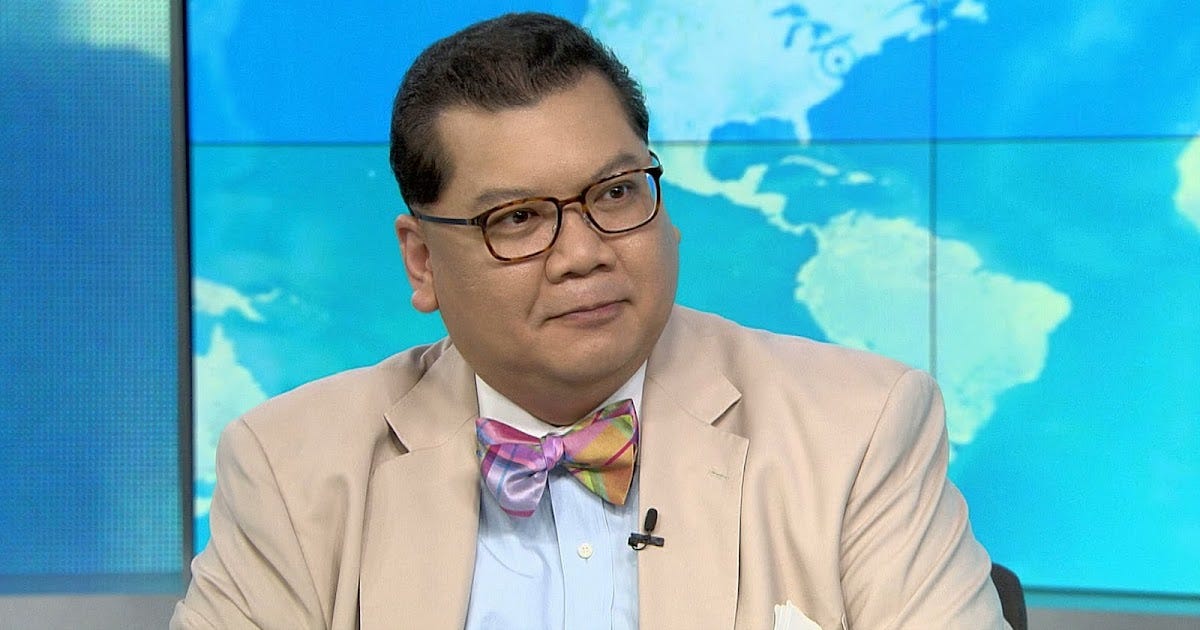(A note: some of you might not be aware, but I also have a YouTube channel by the same name, Pax Americana. Check it out.)
Like many of us, I’m sure, I’m still digesting Trump’s decisive victory.
The immediate good news is that the United States dodged a bullet. The worst-case scenario, the one I feared the most, was a close election that would quickly degenerate into the kinds of claims of fraud we saw in 2020. Imagine if Harris had won, but barely: Trump almost certainly would have refused to concede. I’m certain there would have been violence. The damage done to American democracy, and thus to America, would have been grievous. Fortunately, that did not happen.
As to why Trump did so well, I’ll leave to others. I of course have read many “hot takes” as well as more careful and thoughtful bits of analysis. Ultimately, however, I am left to conclude that there are too many factors in play to judge decisively whether it was this or that thing that caused so many people to vote for Trump, and fewer people to vote for Harris. Some voted for X; some against Y. Some rejected X in favor of Y. But for each voter, the X and Y were different, or they weighed them differently in their calculus. In any case, U.S. domestic politics are not my specialty, and not the focus of this newsletter. I’m just deeply relieved we won’t see a replay of January 6.
Let’s focus on foreign affairs. What does Trump’s election mean?
Alas, there are no easy answers.
First of all, there’s the Republican Party/conservative agenda, and then there’s the Trump agenda. These things are not synonymous. Republican pundits like to argue for this and that, and often they are projecting upon Trump their own foreign policy preferences. They want to believe that Trump shares their agenda. But does he? Maybe.
There appears to be two tendencies within the Trump camp that are at odds with one another. On one hand, there is an internationalist yet conservative agenda that perhaps can be described as “neo-conservative.” I admit to being comfortable with that side of things; I’ve been accused of being a “neo-con,” something I rejected back when being a neo-con meant endorsing the 2003 Iraq war, which I opposed on what I considered realist grounds. However, in calling this newsletter Pax Americana, I basically am signaling that I believe in the American Empire and wish it to endure. So, I welcome ideas and debate regarding how to strengthen it, and I often find the best ideas come from the Right. But then there is the nativist/isolationist “America First” agenda. That’s a whole other thing. Aside from the racist if not Nazi overtones (think Charles Lindbergh and the German-American Bund), it will weaken the Pax Americana and lead to global instability by encouraging revisionist powers intent on undermining or overturning American pre-eminence. That’s bad for us. It’s bad for the world, whatever the proponents of “multi-polarity” and the “Global South” believe. We should all have in mind the extent to which America’s abdication of its Great Power responsibilities in the 1920s and 1930s contributed to the events that led to the Second World War. To put it another way, isolationism then ended up biting us in the ass. Isolationism now would do the same.
President Harding’s isolationism ended up costing us dearly
Looking first to the GOP/conservative agenda, there is quite a bit I either like or am simply ok with. If we turn to the infamous Project 2025 report authored by the Heritage Foundation (the report is an expression of a certain conservative perspective and SHOULD NOT be read as indicative of Trump’s own agenda), there is much I applaud. A fundamental tenet one finds in the report is the conviction that America’s military strength is essential to maintain the Pax Americana. I wholeheartedly agree. Beyond that, one finds in the Project 2025 report cogent and incisive critiques of the U.S. bureaucracy (State, DoD, etc.), its fecklessness, and its general mismanagement. Project 2025 makes several recommendations I endorse. Among the elements I like are its critique of the U.S. approach to development aid—something I’ve become cynical about—and the Biden administration’s lack of realism with respect to the importance of strength and leadership. Project 2025 rightly condemns the Biden administration for positions that unwittingly broadcast weakness, not to mention its propensity for injecting its culture war priorities into its engagement with foreign partners. And yes, Project 2025 is correct (albeit overly hyperbolic) that DEI has run amok in the U.S. government and must be rolled back. One also finds in Project 2025 a laudable aspiration for a Grand Strategy, and a desire to align all the levers of U.S. government power to support that Strategy.
There are aspects I don’t like, such as Project 2025’s complete denial that climate change is a huge problem, and its rejection of making combatting it a priority. This comes to no surprise. I know a senior Heritage Foundation fellow who can be quite reasonable until she starts up about the “climate hoax.” Climate change is not a hoax. It’s a gigantic problem with enormous ramifications for national security and global stability. We can debate how best to deal with climate change, but dismissing climate change is, fundamentally, crazy.
Project 2025, I should add, overemphasizes the Chinese threat. I don’t dismiss the threat, but I fear what would happen if policymakers viewed the world through the lens of an anti-China monomania. This encourages the kind of blindness the U.S. policymaking community was guilty of during the Cold War, when it could only view things in terms of us versus the Soviets. That, in a nutshell, is why we completely misunderstood, for example, the significance of Iran’s Islamic Revolution and the rise of jihadism—which if anything we nourished in our anti-Soviet campaign. It was our anti-Soviet monomania that prevented Presidents Carter and Reagan from reacting appropriately to Iran’s taking of U.S. hostages and blowing up of our embassies. It was our anti-Soviet monomania that encouraged us to turn a blind eye to Pakistan’s nuclear weapons program, or that prompted us to cultivate the Afghan mujahideen, from which Al Qaeda sprang. Relatedly, once I did a study for the CIA that gave me the opportunity see precisely what reports CIA published in the 1970s and 1980s. I was surprised by the large quantity of reports that dealt with Africa. That was, however, until I realized that the U.S. government only cared about Africa insomuch as it cared about the influence of the Soviet Union and its proxies. Very little of what analysts wrote had anything to do with Africans for their own sake. It was never about understanding Africans. It was always about what the Soviets or perhaps the Cubans were up to, or what a given development might mean for whether a country aligned with us or them. The result was blindness.
Turning to the Trump agenda, we are in murky water. Trump ostensibly is a China hawk and an Iran hawk. Good, if true. However, his handling of both dossiers during his first administration was inconsistent. Trump imposed some tariffs on China, but otherwise betrayed no understanding of how tariffs worked, or how they might fit into a larger industrial policy or Grand Strategy. The tariffs he imposed were scattershot and seemed intended more to demonstrate to his base that he was imposing tarrifs than implementing a coherent economic policy. I’ve always been a bit of a protectionist and was appalled in the 1980s and 1990s when U.S. policy consisted of deindustrialization and encouraging China to eat our lunch and then steal the recipes, but what I want most is a coherent strategy. As for Iran, was abandoning the JCPOA really a good idea? Yes, it was a flawed document, but undoing it without a viable alternative, and without being able to implement the so-called “maximum pressure” policy, does not appear to have gotten us far. Trump killed Qasem Soleimani—which was good—but chickened out at the last minute before responding to Iran’s downing of a U.S. drone. Word in the Pentagon at the time was that he called off a retaliatory attack because he was watching Hannity, who warned against escalation. What was the end result of Trump’s stance on Iran? Was Iran deterred? Was it impressed by our resolve or our strength? Hawkish rhetoric is not the same thing as a strategy, although it might be part of one. In this instance, I do not think it was.
Qasem Soleimani. Trump did well in killing him.
The best thing Trump did with respect to foreign affairs was the Abrahams Accords, which I regard as a fine bit of realist policymaking. Trump pushed aside long-standing DC foreign policy community orthodoxies. It was precisely the sort of “cut the bullshit” approach I suspect Trump voters were counting on, and that I could not dislike. Moreover, despite 7 October, the reality is that the Abrahams Accords still stand. The countries that are signatories to the Accords did not back away from Israel, at least not in any substantive way. I am hoping that the second Trump administration will pick up where he left off. One key to that will be freeing Israel to win its wars, and shelving the Biden administration’s pre-occupation with de-escalating conflict with Iran. Israel has called Iran’s bluff and has hammered Iran’s once-feared proxies. This represents an opportunity one should seize rather than squander. Will Trump do that? Maybe. All we know is that a President Kamala Harris probably would have followed Biden’s “get off the X approach,” and maybe worse.
Of course, by hoping that Trump will cut Israel’s leash, that arguably makes me no different from any other person who projects his or her wishes upon Trump. I’ve long suspected that all those who backed Trump over Harris because of Israel will be disappointed. We shall see.
Another good thing Trump did was rattle our NATO allies. They absolutely had become complacent about needing to defend themselves. Yes, they increased their defense spending prior to 2016, but Trump’s rhetoric appears to have spurred them to do even more. As it happens, most have yet to invest nearly as much as they should into their own defense capabilities. Trump’s election could go a long way toward changing that.
Which brings us to Ukraine. This worries me a great deal. Trump himself has broadcast his dislike for Zelensky (apparently for parochial reasons), and his affinity for Russia. Trump’s recent announcement that he was excluding Mike Pompeo and Nikki Haley from consideration for future cabinet rolls is worrying: Both were staunch friends of Ukraine (and Israel), and GOP hawks of the old school. We can write off his exclusion of Haley as vindictiveness, given her opposition to him during the primaries, but Pompeo basically was a loyalist. The implication is that Trump did not like his policy, and that it was nothing personal. With Haley and Pompeo out of the game, that leaves whom, precisely? I would have thought Haley would be a shoo-in for Secretary of State and rather liked the idea. Oh, well.
A bit of silver lining: There is lots of chatter about Peter Pham being the next Assistant Secretary for African Affairs. I hope this is true: He is an intelligent and deeply knowledgeable Africa expert and cares a lot about the continent, so much so that he would not fall prey to the black-and-white monomania I alluded to above, wherein everything is seen through the eyes of Great Power competition (without losing sight of Great Power competition, either). Moreover, because Trump himself has no interest in Africa, an “adult in the room” like Pham may have considerable room to craft policy rather than have it dictated to him. I’m looking forward to seeing what he does.
Peter Pham
One final comment: One of the things that distinguished Haley from Trump and almost every other major politician of either party was her concern about the budget deficit. I did not like her solution, which was to gut social spending, but I credit her for talking about it. She was the last of the GOP budget hawks. Trump’s answer has always been to cut taxes more without cutting much of anything, thereby raising the deficit. The budget deficit and the national debt ballooned under Trump. I know that many argue that it does not matter how big U.S. budget deficits are; the country’s finances are like a never-ending pyramid scheme. Maybe. I am unschooled in macro-economics or fiscal policy. But this seems contrary to common sense, and I can’t help but feel that sooner or later our global ambitions—which require robust defense spending, as well as spending on items for the common good like infrastructure—will collide with fiscal reality. Maybe Trump will be the guy who can reign in defense spending. He could get away with it politically as no one else could. But would he? And if he did, where would that leave aspirations for maintaining or even growing U.S. hard power?
Here's to hoping for the best.
PS. After writing this I learned that Trump has Marco Rubio to be the new Secretary of State, Michael Waltz to be the National Security Advisor, and Elise Stefanik to be the US Ambassador to the UN. Whatever we might think of these individuals’ stances on domestic politics, they are internationalists rather than America First isolationists. They are pro-Ukraine and pro-Israel. I am relieved.






